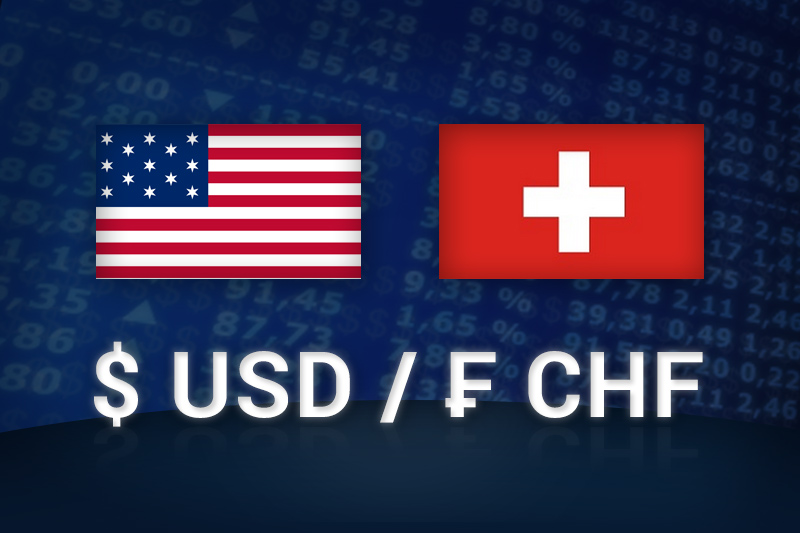Investing.com - The U.S. dollar pushed higher against the Swiss franc on Wednesday, but prospects for action by the European Central Bank to ease the debt crisis in the euro zone limited the greenback’s gains.
USD/CHF hit 0.9717 during European morning trade, the pair’s highest since Monday; the pair subsequently consolidated at 0.9708, rising 0.21%.
The pair was likely to find support at 0.9655, Monday’s low and a one-month low and resistance at 0.9738, Monday’s high.
Market sentiment continued to be supported by expectations that the ECB will soon take steps to help lower Spanish and Italian borrowing costs after the bank indicated last week that it may restart its bond buying program.
Overnight, ratings agency Standard and Poor’s revised the outlook for Greece to negative, from stable and warned that Athens was likely to miss the financial targets set by its international lenders, which would increase the likelihood of a default.
Elsewhere, comments by Boston Federal Reserve President Eric Rosengren on Tuesday kept alive speculation over the possibility for more easing by the U.S. central bank.
Rosengren said the Fed should launch another round of quantitative easing of whatever size and duration was necessary to get the economy back on its feet.
The comments came after data last week showing that the U.S. unemployment rate unexpectedly ticked up to 8.3% in July, from 8.2% the previous month.
In Switzerland, the State Secretariat for Economic Affairs said Wednesday that the consumer confidence index dropped to minus 17 for the April to July period, down from a reading of minus 8 points in the three months to April, amid growing pessimism over the economic outlook and unemployment.
Analysts had expected the index to improve to a reading of minus 4.
The Swissie was little changed against the euro, with EUR/CHF steady at 1.2011.
The Swiss National Bank said Tuesday that its foreign currency reserves climbed to a record CHF406.5 billion in July, from an upwardly revised CHF365.1 billion in June, indicating that the central bank has continued its currency market intervention to defend the 1.20 per euro exchange rate floor.
Following the report, Switzerland’s finance minister said the SNB was in a position to stabilize the Swiss franc in an unlimited fashion.
USD/CHF hit 0.9717 during European morning trade, the pair’s highest since Monday; the pair subsequently consolidated at 0.9708, rising 0.21%.
The pair was likely to find support at 0.9655, Monday’s low and a one-month low and resistance at 0.9738, Monday’s high.
Market sentiment continued to be supported by expectations that the ECB will soon take steps to help lower Spanish and Italian borrowing costs after the bank indicated last week that it may restart its bond buying program.
Overnight, ratings agency Standard and Poor’s revised the outlook for Greece to negative, from stable and warned that Athens was likely to miss the financial targets set by its international lenders, which would increase the likelihood of a default.
Elsewhere, comments by Boston Federal Reserve President Eric Rosengren on Tuesday kept alive speculation over the possibility for more easing by the U.S. central bank.
Rosengren said the Fed should launch another round of quantitative easing of whatever size and duration was necessary to get the economy back on its feet.
The comments came after data last week showing that the U.S. unemployment rate unexpectedly ticked up to 8.3% in July, from 8.2% the previous month.
In Switzerland, the State Secretariat for Economic Affairs said Wednesday that the consumer confidence index dropped to minus 17 for the April to July period, down from a reading of minus 8 points in the three months to April, amid growing pessimism over the economic outlook and unemployment.
Analysts had expected the index to improve to a reading of minus 4.
The Swissie was little changed against the euro, with EUR/CHF steady at 1.2011.
The Swiss National Bank said Tuesday that its foreign currency reserves climbed to a record CHF406.5 billion in July, from an upwardly revised CHF365.1 billion in June, indicating that the central bank has continued its currency market intervention to defend the 1.20 per euro exchange rate floor.
Following the report, Switzerland’s finance minister said the SNB was in a position to stabilize the Swiss franc in an unlimited fashion.
